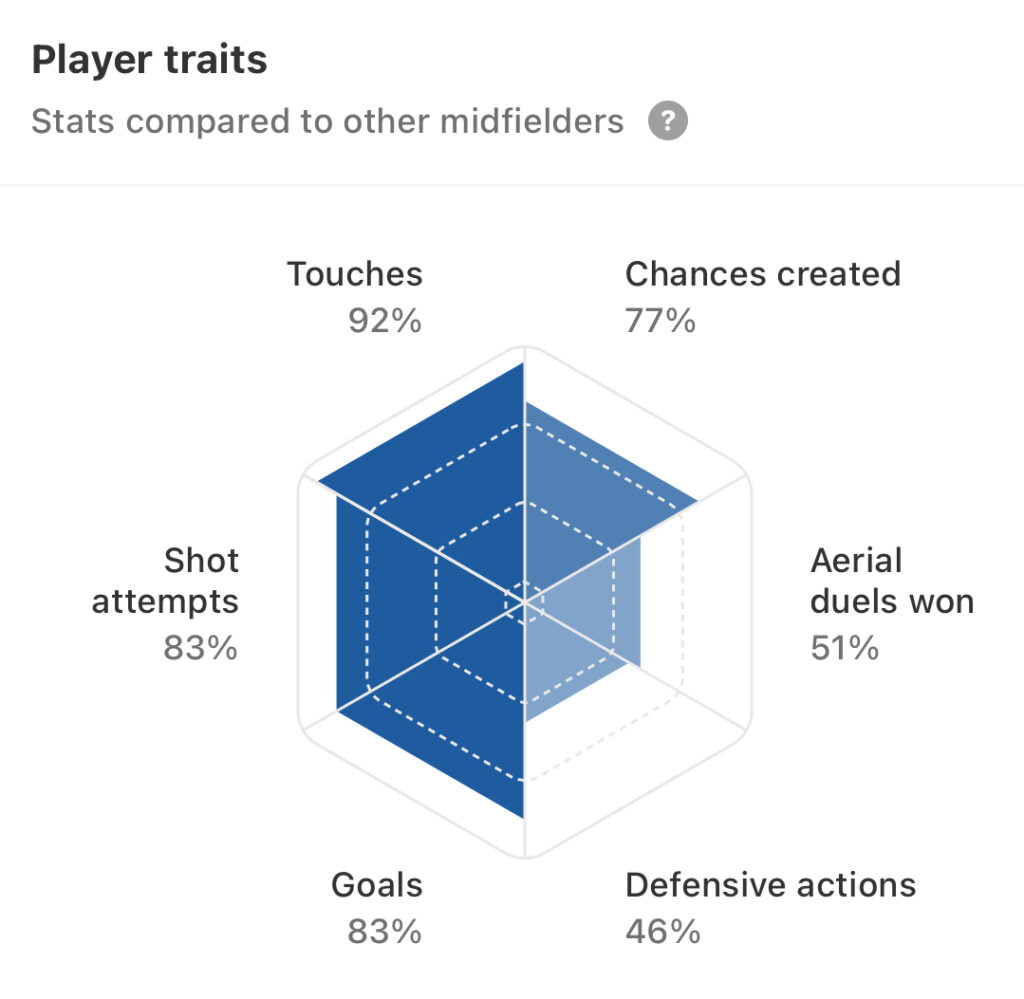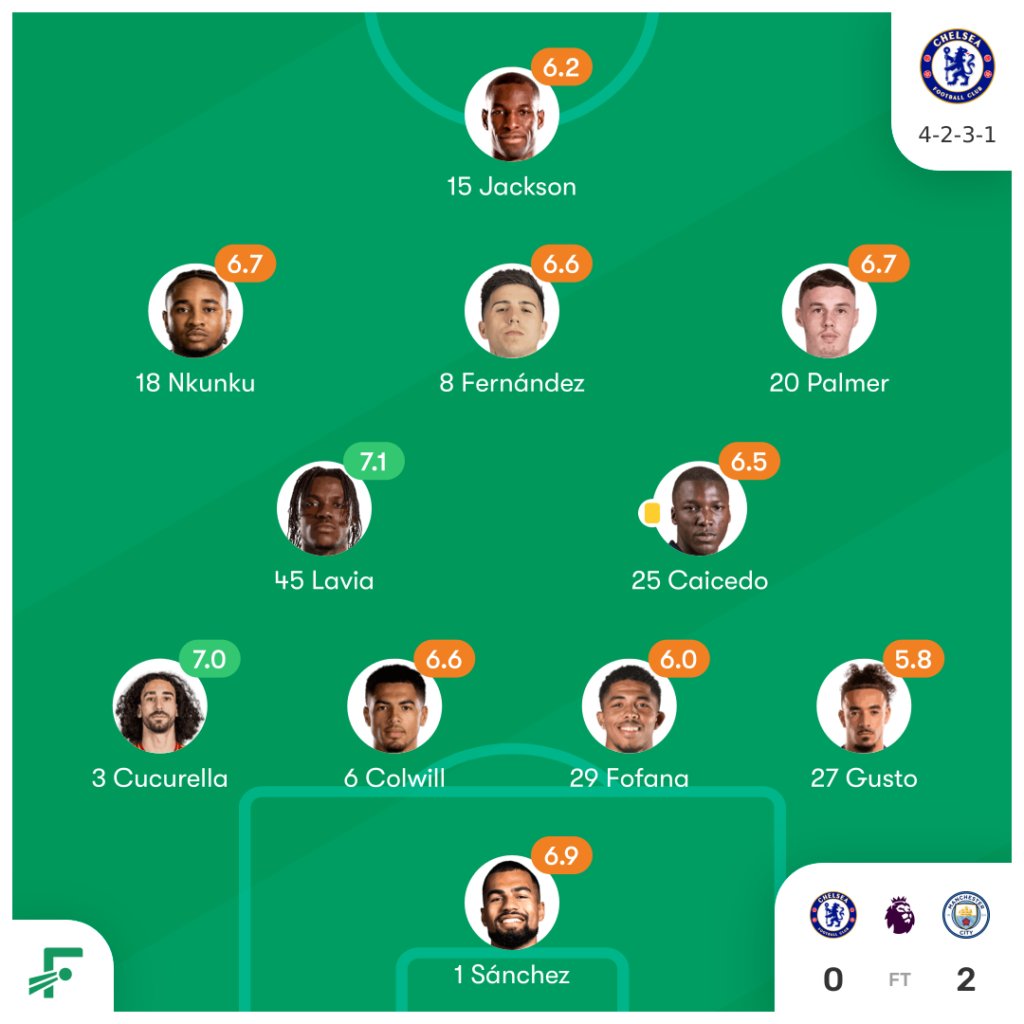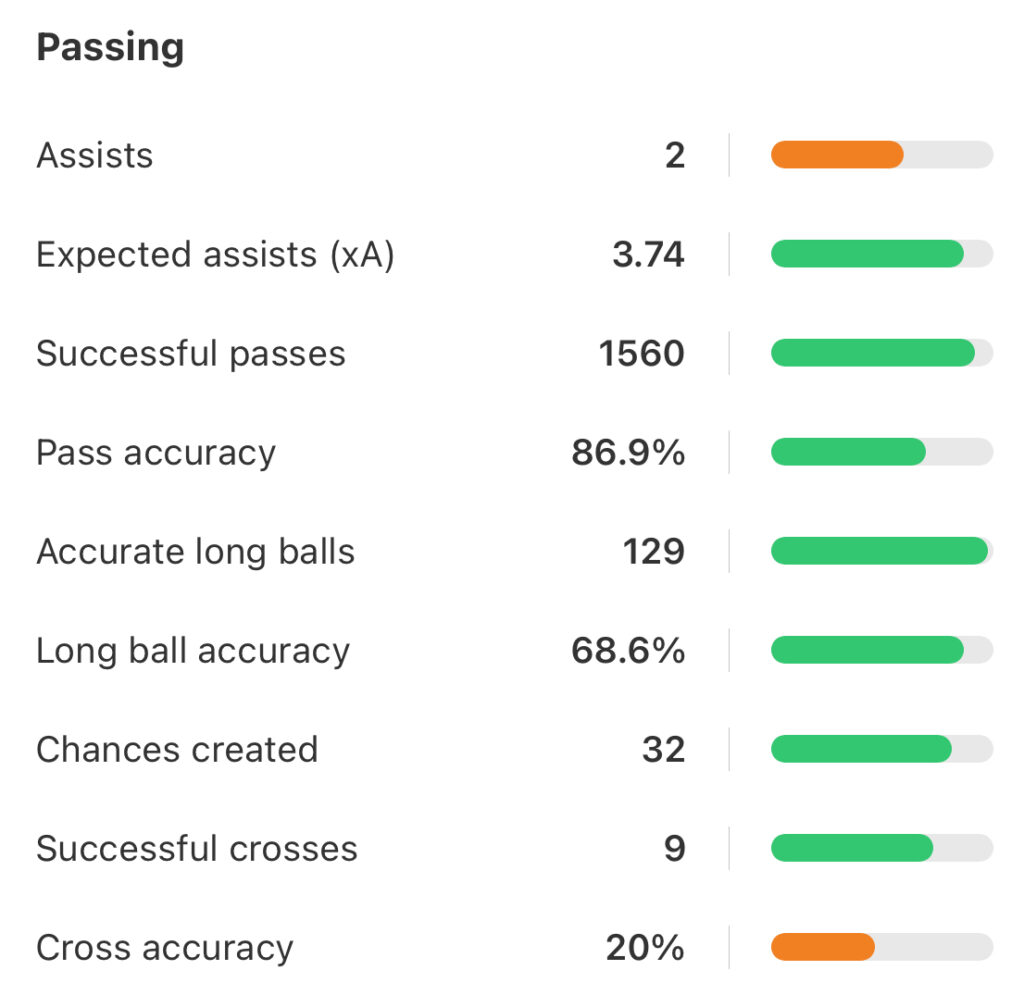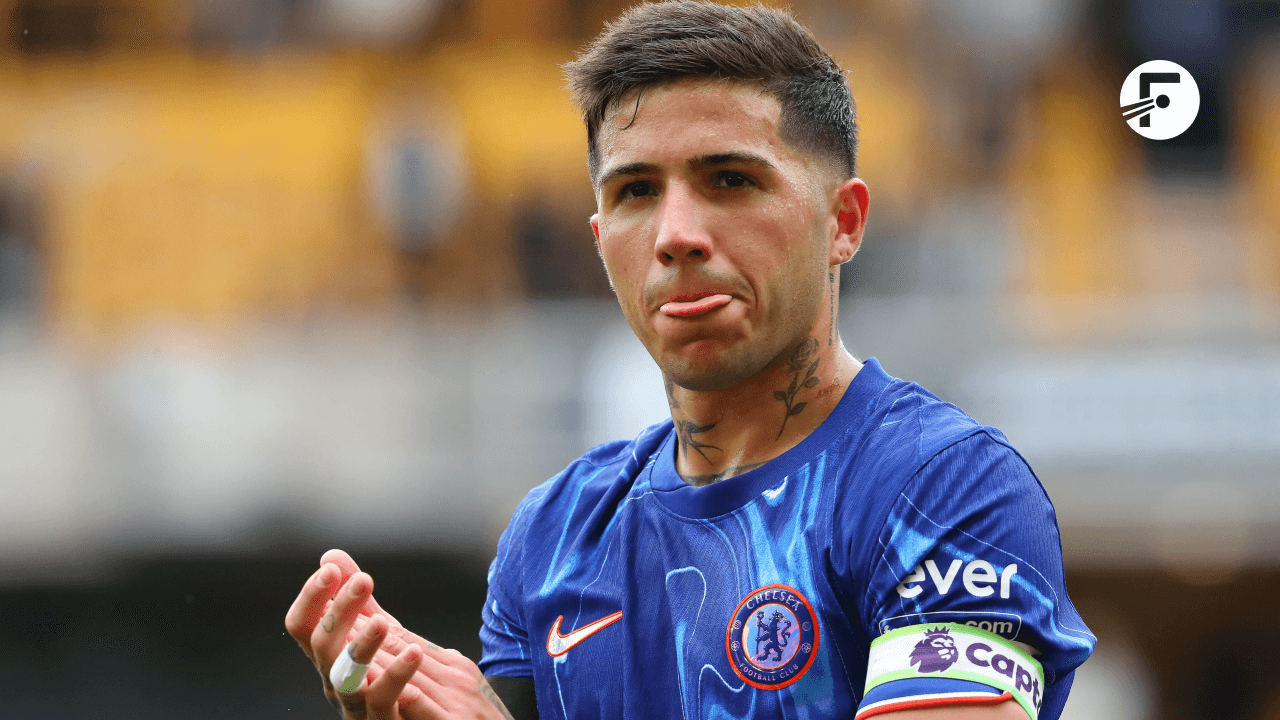There were already so many questions surrounding Chelsea this summer that one more hardly seemed to matter.
And yet, naming Enzo Fernández as vice club captain – effectively captain in the absence of injured Reece James – just weeks after he was accused by a teammate of “uninhibited racism” for chants while away on international duty, raised eyebrows at the very least. At worst, it was a disastrously short-sighted and tone-deaf decision. Perhaps somewhere in the middle, and from a purely footballing perspective, there’s the matter of whether it benefits him, or the team, at all.
Some context and room for adjustment must be given first to Fernández himself. A World Cup-winner with a simply enormous price tag, the British transfer record signing – £107m from Benfica – could hardly have greater expectation on him. And yet, he’s still only 23 years of age now and spent only a matter of months at the Portuguese club, being at River Plate in his home country before that.

We might look at him now and judge on the merits of what he achieved in Qatar and what Chelsea paid for him, but it must still be pointed out that six weeks previous to signing on at Stamford Bridge, he’d earned only three senior international caps. He was a debutant at that level only two months after leaving Argentina’s top flight in the first place – these levels of expectation, judgement and standards to maintain are all incredibly new for him, incredibly quickly.
Yet Chelsea have made their decision, and so maintain them – and inspire others to reach them – he must.
On the evidence so far in 2024/25, new head coach Enzo Maresca has yet to find a way to get the best out of his namesake.
While he started slightly higher upfield in the Blues’ opener against Manchester City, effectively the No. 10 or link man who could also drop deeper to give more midfield heft out of possession, Fernández was totally bypassed. That’s not a definite slight against his name, given the slick domination of City against most opponents, but he wasn’t exactly a defensive force in the game either.

If positives were to be taken, they came from him getting high enough upfield to at least try and unlock City’s defence – only one player had more than his seven touches in the attacking box, he took three shots himself and made eight passes into the final third, the highest on the pitch.
They came to little, but at least he was getting on the ball. Defensively he was bypassed, and for a large portion of the second half, was well on the periphery of the match. Meanwhile in the win over Wolves, back as the ‘second’ midfielder, he was more conduit than direct playmaker, not among Chelsea’s match-winners by construct or end product, and again sorely lacking in the first half when the Blues simply could not contain their hosts when they attacked.
Fernández won three of his four tackles and made five ball recoveries, but was also dribbled past three times and won only six of his 11 ground duels. None of these numbers account for the times he was simply missing in action either, a gap beside Moisés Caicedo or only a token attempt to get near a runner made by the Chelsea captain as the old gold swarmed forward and constantly troubled the Chelsea back line in a topsy-turvy first half.

Early days, both in the season and of his captaincy, but that’s a lot of performance improvement required for a player who cost as much as he did, and who has so far not impacted his team’s level in the manner which might be expected. Moreover, with a new head coach and yet again a new collection of players, it would normally be the case that squad members look to Fernández as a senior figure of authority, both to lead them and to ensure they show their own maximum out on the pitch.
It’s tough to see how Fernández can do this, not only harking back to the earlier-mentioned incident with Argentina, but also when his own level is wavering, his role in the team uncertain, his status as a key player still dependent on impressing a new boss regularly.

Last term his stats were middling at best: better than 68% of Premier League midfielders for chances created, 64% for dribbles, 59% for touches in the box, 45% for duels won, 54% for possession won in the final third. On it goes in a similar vein in other areas of performance. Only in his passing – range and accuracy – can he claim to be around the top few, and in his shots taken and xG per 90 for around the top ten per cent.
That’s scant return for a £107m signing, and arguably even less for the captain of a squad which cost over a billion to build. Improvement is needed in every regard, and quickly.
(Cover image from IMAGO)
You can follow every Chelsea game with FotMob this season — featuring deep stats coverage, xG, and player ratings. Download the free app here.
